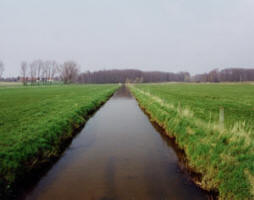- Regional water observation mechanism
- Regional Cooperation Assessment
- Water Quality Monitoring (JP)
- Water scarcity and drought (JP)
- Groundwater (JP)
- Waste water reuse (JP)
- Shared Water Resources Management (JP)
- Linking rural development and water management (JP)
- Waste management
- Water institutions
- Climate Change
- Floods
- Desalination
- Right to Water
- Irrigation
- Satellite data
- Water reports & data
- Hydrology
- Sanitation
- Gender and IWRM
- ArabWAYS
- Non-Revenue Water
- Virtual Water & Water Footprint
- WANA Water Panel
- Water Demand
- Water Governance
- Water Pricing
- Water accounts
- Water nexus Energy
- Geosciences
- Rural Management
 Zero Waste Index proposed for improving city waste management
Zero Waste Index proposed for improving city waste management
A new tool to improve the measurement of waste management performance has been presented by a recent study. The researchers applied it to three high consuming cities aspiring to 'zero waste', finding San Francisco to be closer to achieving zero waste than Stockholm and Adelaide, due to its emphasis on reusing solid waste.
Cities cover 2% of the world's surface, but generate 70% of the world's waste. With increasing urban populations and consumption in developing nations, levels of urban waste can be expected to continue growing. However, the zero waste concept calls for there to be 'no such thing as waste'. In this study, the concept is discussed and a method for assessing cities' zero waste performance is presented.
The researchers disagree with the commonly-held belief that zero end-disposal through landfill is the same thing as zero waste, and argue that this definition does not place enough emphasis on how waste can be reused as a material resource (as opposed to being incinerated, for instance). Furthermore, they do not believe that it accounts for 'upstream' aspects of the waste hierarchy, such as minimising the need for materials through behaviour change and efficient design of products and services. Instead, they take a broader look at city resources, believing that the zero waste concept should go beyond zero landfill and aim for 'zero depletion of natural resources'.
The Zero Waste Index they propose quantifies solid waste flows and measures the extent to which materials may be reused as substitutes for virgin materials. In addition to the overall percentage of material recovery and substitution, the approach calculates other 'savings' made, including energy saved, greenhouse gases avoided, and water savings (regarding the water use within material supply chains).
The researchers first calculated the generation of domestic waste materials, specifically paper, glass, metal, plastic, organic and mixed solid municipal waste for Adelaide (Australia), San Francisco (USA) and Stockholm (Sweden), which are all working to be the world's first zero waste city. Results show that total municipal waste produced per capita was highest in Adelaide (681kg), then San Francisco (609kg), with Stockholm producing the least (480kg).
However, when the Zero Waste Index was used to measure these three cities' waste management performance, San Francisco performed best, scoring 0.51, meaning that around half of its municipal waste materials were recovered and therefore had potential to replace the demand for virgin materials. Stockholm, however, scored just 0.17. Although it produces less waste per capita, its high use of incineration means that it loses large amounts of raw materials. San Francisco also achieved far greater energy and greenhouse gas savings, as well as greater water savings, than the other cities.
Such findings highlight potentially large differences in cities' approaches towards 'zero waste' and the varying outcomes those approaches may have on sustainability issues, such as natural resource use and climate change. Although the Zero Waste Index is a relatively simple tool for city waste managers to use, the study illustrates its potential to increase the sophistication of our understanding and monitoring of 'city metabolisms' in pursuit of zero waste cities. Further research could increase the Index's application to include non-domestic waste streams.
| Contact information |
Zaman, A.U., Lehmann, S. (2013) The zero waste index: a performance measurement tool for waste management systems in a 'zero waste city'. Journal of Cleaner Production. Doi: 10.1016/j.jclepro.2012.11.041.
(email: zamau001@mymail.unisa.edu.au) |
|---|---|
| News type | Inbrief |
| File link |
http://ec.europa.eu/environment/integration/research/newsalert/pdf/324na3.pdf |
| Source of information | Zaman, A.U., Lehmann, S. (2013) The zero waste index: a performance measurement tool for waste management systems in a 'zero waste city'. Journal of Cleaner Production. Doi: 10.1016/j.jclepro.2012.11.041. |
| Keyword(s) | city waste management, Resource efficiency, Urban environment, Waste |
| Subject(s) | ANALYSIS AND TESTS , ENERGY , FINANCE-ECONOMY , HEALTH - HYGIENE - PATHOGENIC MICROORGANISM , INDUSTRY , INFORMATION - COMPUTER SCIENCES , INFRASTRUCTURES , MEASUREMENTS AND INSTRUMENTATION , METHTODOLOGY - STATISTICS - DECISION AID , NATURAL MEDIUM , PREVENTION AND NUISANCES POLLUTION , RISKS AND CLIMATOLOGY , SANITATION -STRICT PURIFICATION PROCESSES , SLUDGES |
| Relation | http://www.emwis.net/initiatives/med-3r |
| Geographical coverage | Australia, United States, Sweden |
| News date | 18/04/2013 |
| Working language(s) | FRENCH |
 you are not logged in
you are not logged in





